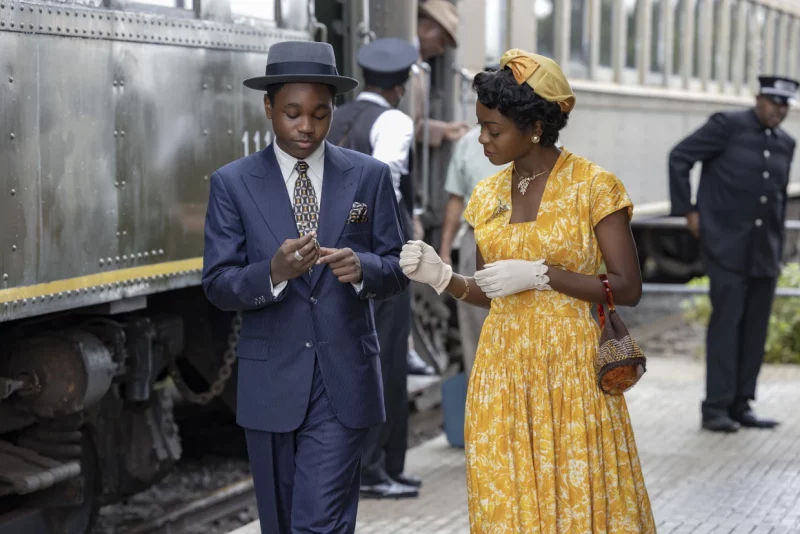‘Till’ lays bare a palpable fear of Black mothers in white America
Share
Explore Our Galleries
Breaking News!
Today's news and culture by Black and other reporters in the Black and mainstream media.
Ways to Support ABHM?
By Aramide A. Tinubu, film critic and entertainment writer

The story of Emmett Till, the 14-year-old Black boy kidnapped and brutally murdered in Mississippi by two white men before they dumped his body in the Tallahatchie River in 1955, is not new. That level of racist vileness has been experienced by victims who came before and after the bright-eyed Chicago boy’s time, echoing recently in the 2020 murder of Ahmaud Arbery.
Yet, in “Till,” filmmaker Chinonye Chukwu offers viewers a different window into Emmett’s life through the perspective of his poised and graceful mother, Mamie Till-Mobley (Danielle Deadwyler).
Through Deadwyler’s powerful performance, viewers will feel the palpable fear of Black mothers knowing they can never fully protect their Black children in white America. It doesn’t matter how much they teach their children the “right” way to speak or act; keeping Black children safe in this country has often proven to be a game of chance.
The film, which hit theaters Friday, begins in Chicago in the days leading up to Emmett’s (Jalyn Hall) fateful August trip to visit family in Money, Mississippi. Despite the Jim Crow microaggressions of the “liberal North,” Mamie has raised Emmett to see himself as a carefree young boy, not a young man bogged down by the perils of racism. Like most boys, he’s enamored with movie stars and excited by life. For her part, Mamie is nervous.
Finish Tinubu’s opinion piece on NBC.
You can learn more about Emmett through his mother’s book Death of Innocence–and discuss it in our book club!









Comments Are Welcome
Note: We moderate submissions in order to create a space for meaningful dialogue, a space where museum visitors – adults and youth –– can exchange informed, thoughtful, and relevant comments that add value to our exhibits.
Racial slurs, personal attacks, obscenity, profanity, and SHOUTING do not meet the above standard. Such comments are posted in the exhibit Hateful Speech. Commercial promotions, impersonations, and incoherent comments likewise fail to meet our goals, so will not be posted. Submissions longer than 120 words will be shortened.
See our full Comments Policy here.